On the mats, in addition to technology, the highlights were the teams from Brazil, Egypt, Romania, Italy and Poland
BY PAULO PINTO / GLOBAL SPORTS
NOVEMBER 29, 2022 / CURITIBA (PR)
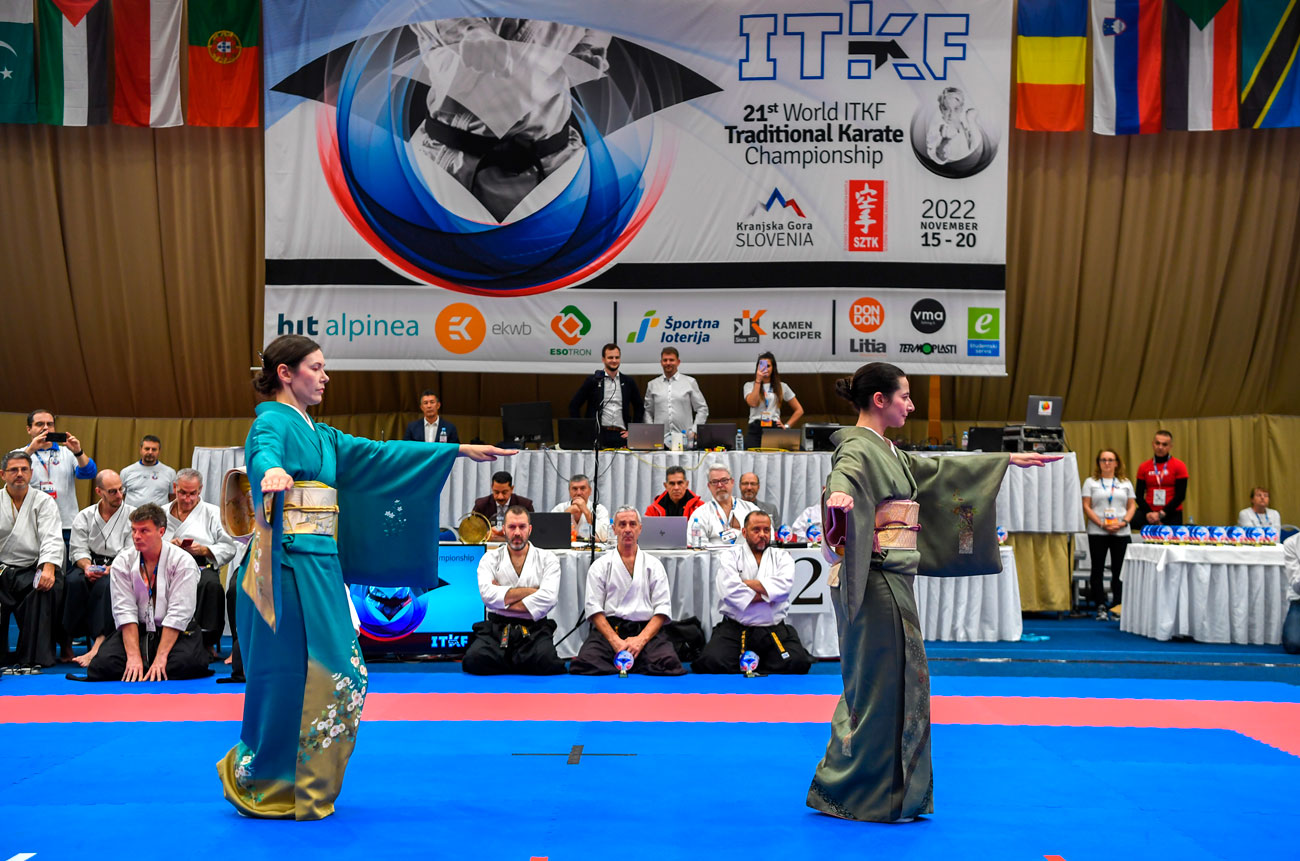
Japanese folk dance performance at the closing ceremony of the event
More than 700 katarecas from 30 countries in Africa, Asia, Oceania, Europe and the Americas competed from November 15th to 21st in the 21st edition of the Traditional Karate World Championship in Kranjska Gora, Slovenia, promoted by the International Traditional Karate Federation (ITKF).
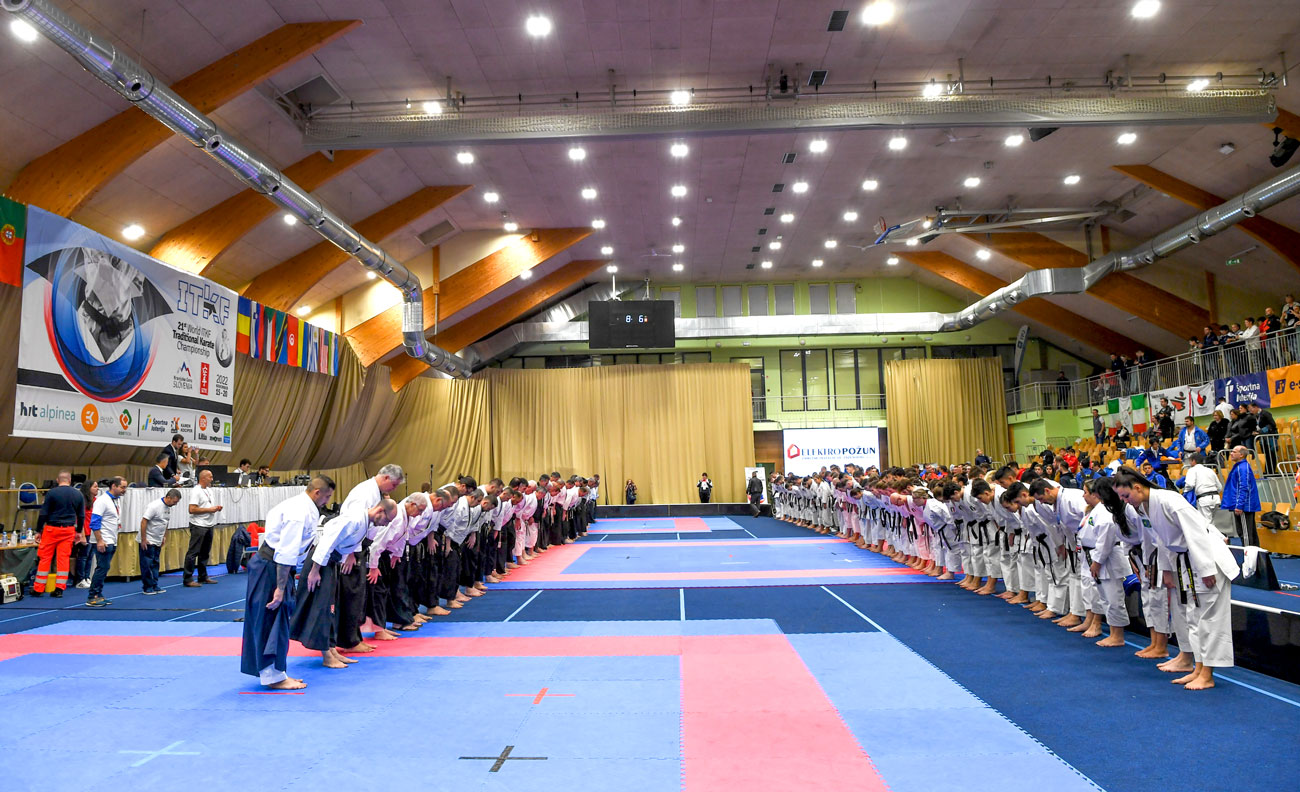
Ritual greeting before the start of the final disputes
As is always the case at ITKF events, the days leading up to the competition were filled with technical and administrative work. However, at the management level, innovation and the use of technology were the high point of the meeting. On the 15th, ITKF Technical Committee met; on the 15th and 16th, the Master Course; and also on wednesday (16), the Regional Meeting of Africa, Asia/Oceania, Europe and Pan-American and the directors meeting, in addition to the ordinary General Meeting that elected the directors for the four-year period 2023/2026.
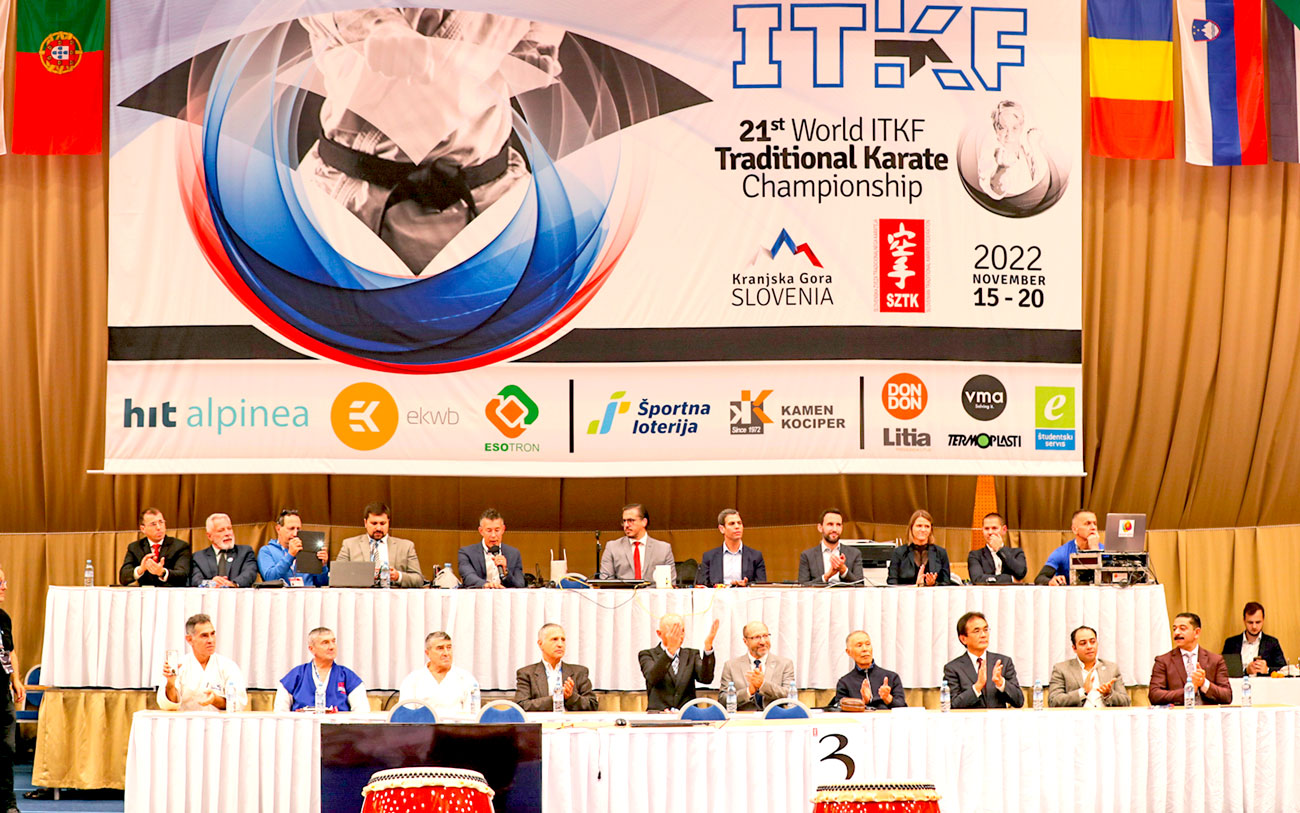
Opening ceremony of the 21st ITKF World Championship
Ramy El Mekawi (Egypt), chairman of the African Federation; Ibrahim Albakr (Uzbekistan), chairman of the Asia/Oceania Federation; Romulo Machado (Portugal), president of ITKF; Sandrine El Marhoumy (France), ITKF vice-presidente; have been elected. Gilberto Gaertner (Brazil), was reelected as ITKF chairman.
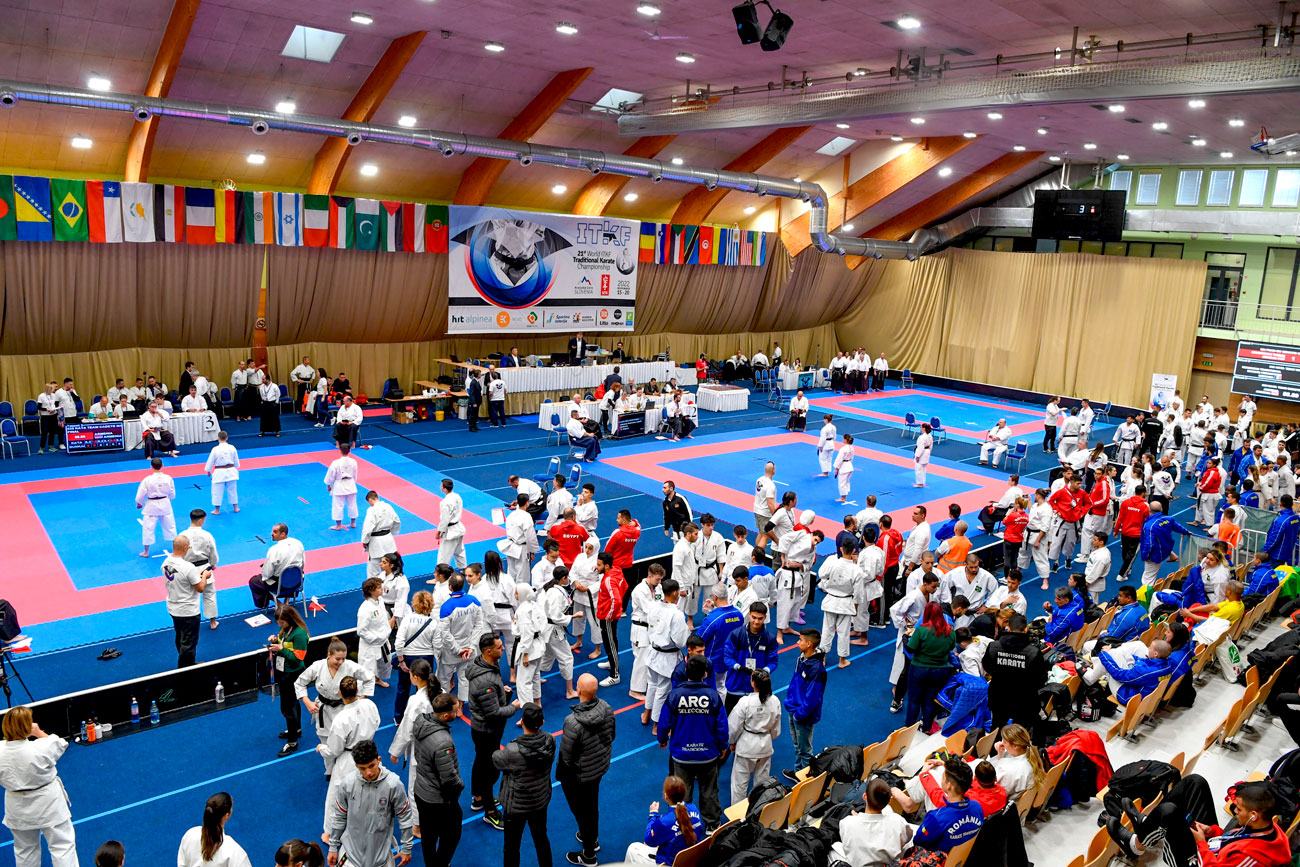
The competition was held in five areas, while the finals took place in just three © Júlio Oscar Albornoz
On Thursday (17th) the sporting events began with the II Traditional European Karate Cup. In the evening, dinner was offered for the ITKF board and presidents of member countries. It is important to point out that the first day of the dispute was marked by a great movement of athletes, coaches and referees, who celebrated the resumption of world competitions after three years. As of the second day, the anxiety was decreasing and everything flowed with excellence until the finals.
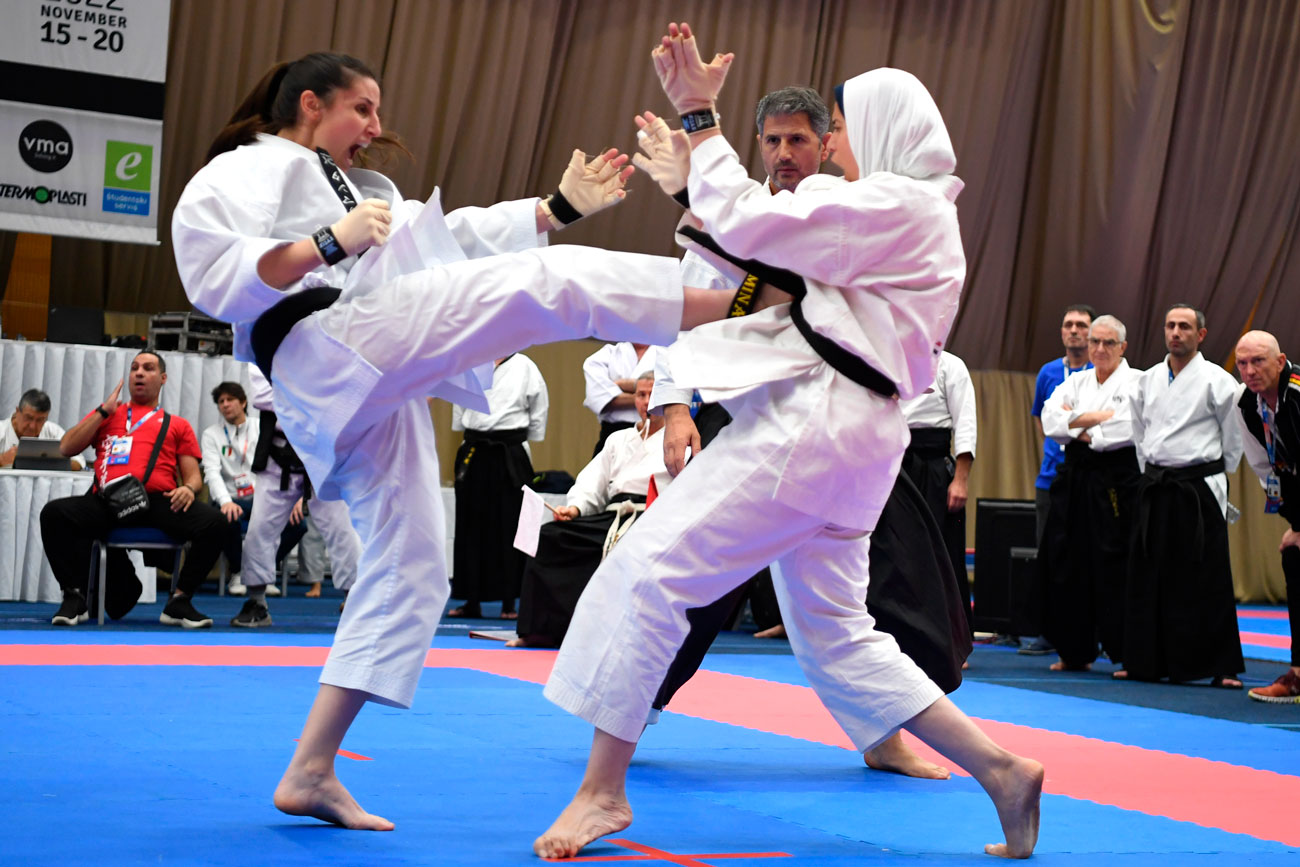
Female kumite dispute © Júlio Oscar Albornoz
On the 18th and 19th, the qualifiers of the 21st Traditional Karate World Championship took place and on the 20th, the disputes that defined the finalists of the competition. The night ended with the Sayonara Party, a festive and relaxing event in which all the delegations gather to strengthen ties and fraternize.
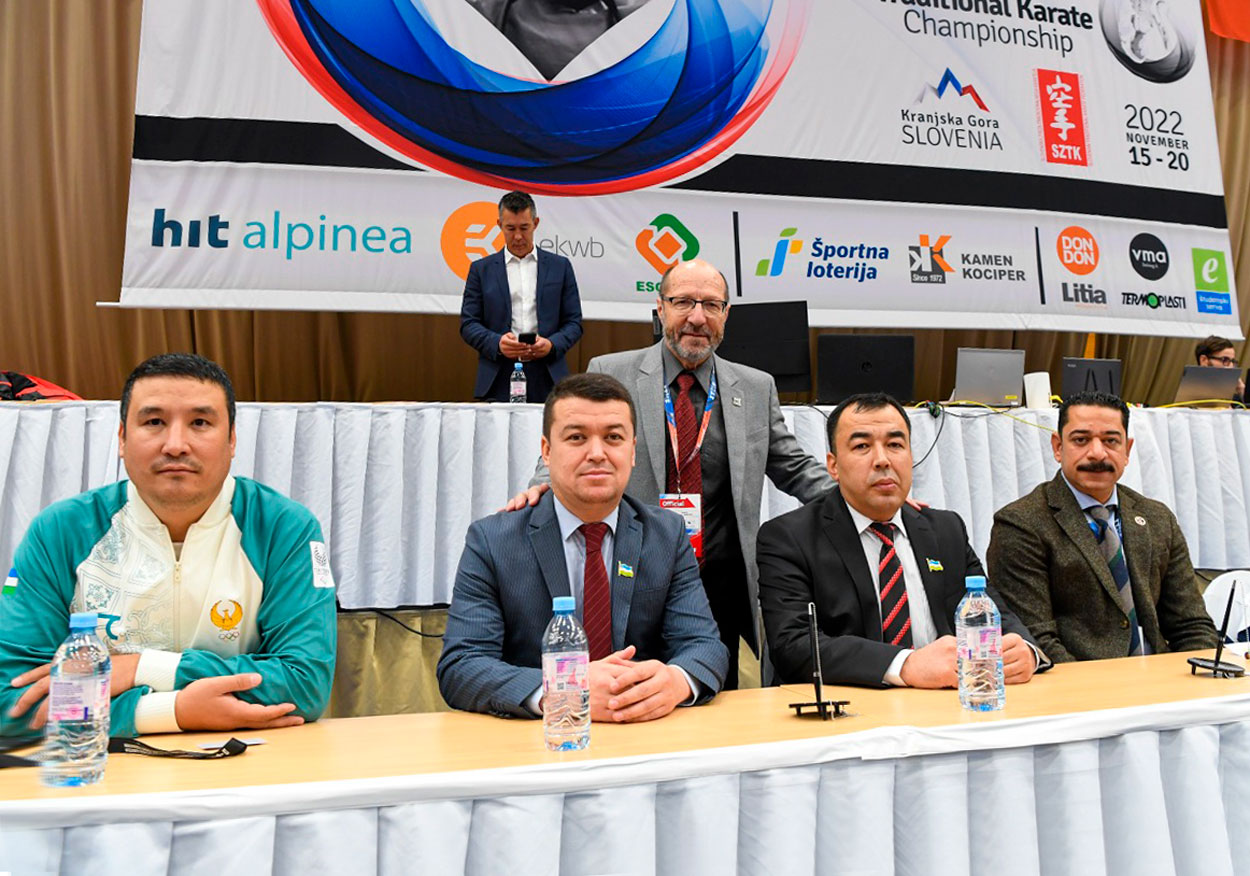
Mr Sukhrat, chairman of the Federation of Uzbekistan; Saidov Bakhtiyor Odilovich, minister of Education of the Republic of Uzbekistan; Tolibjon Toyirov, deputy Prime Minister of the Republic of Uzbekistan; Mr Ramy El Mekawi, chairman of the African Federation with the Mr Gaertner, ITKF chairman
At the end of the schedule, on the 21st, there was another administrative meeting for the general evaluation of the events of the official program of the 21st ITKF Traditional Karate World Championship.
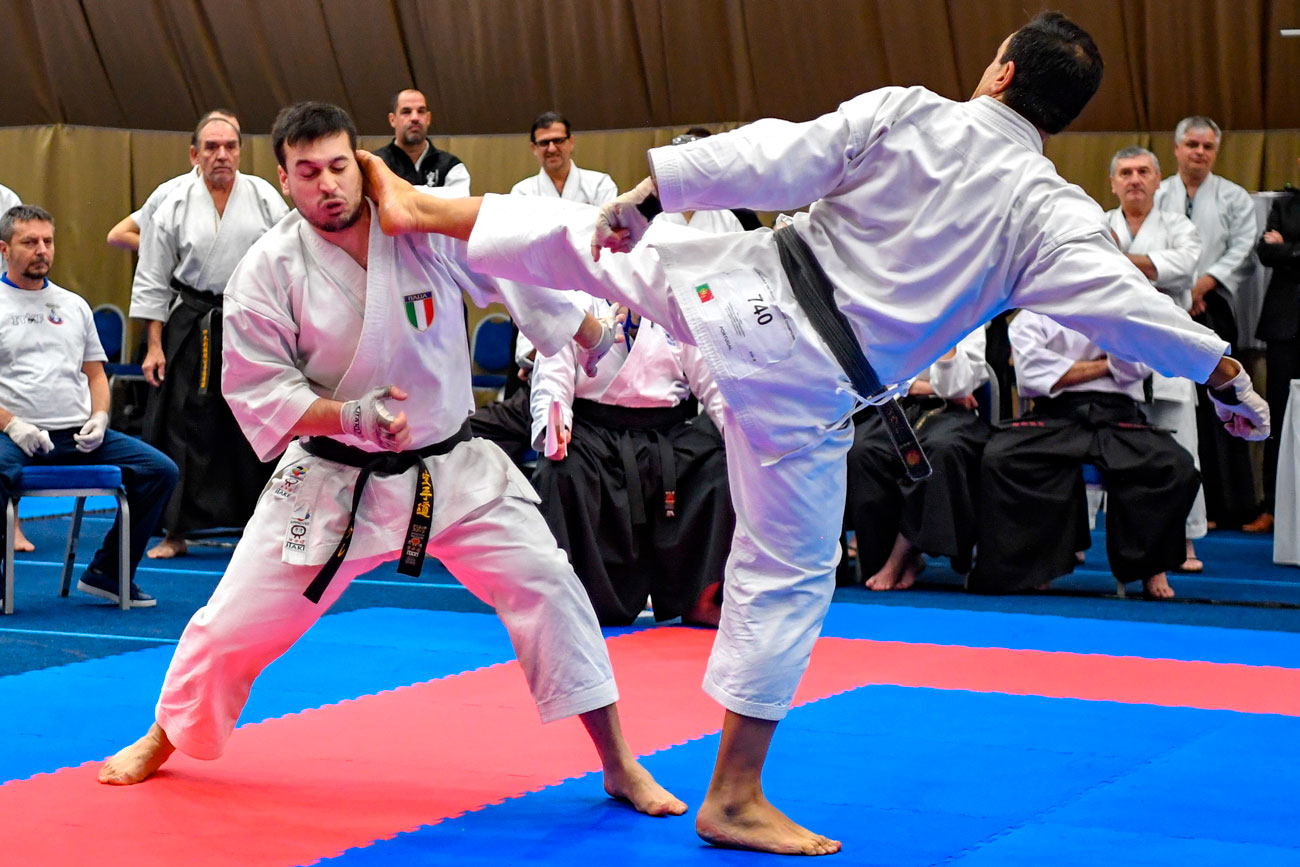
Men’s kumite dispute © Júlio Oscar Albornoz
21st ITKF World Championship
Important political and sports authorities participated in the opening ceremony and were present at the world championship: Gilberto Gaertner (Brazil), chairman of ITKF; Rômulo Machado (Portugal), president of ITKF; Sandrine El Marhoumy (France); vice-president of ITKF; Roman Pavlovic (Slovenia), chairman of the European Federation and the organizing committee; shihans Takashi Tokuhisa (Slovenia) and Dino Contarelli (Italy); Hiromichi Matsushima, Japanese ambassador to Slovenia; Mahmoud Yahia, ambassador of Egypt to Slovenia; Mohamed Yahia, consul of Egypt in Slovenia; Tolibjon Toyirov, deputy prime minister of the Republic of Uzbekistan; Saidov Bakhtiyor Odilovich, minister of Education of the Republic of Uzbekistan; Roman Lisac, honorary consul of Israel; masters Eligio Contarelli (Italy) and Justo Gómez (Argentina), members of the ITKF Technical Committee.
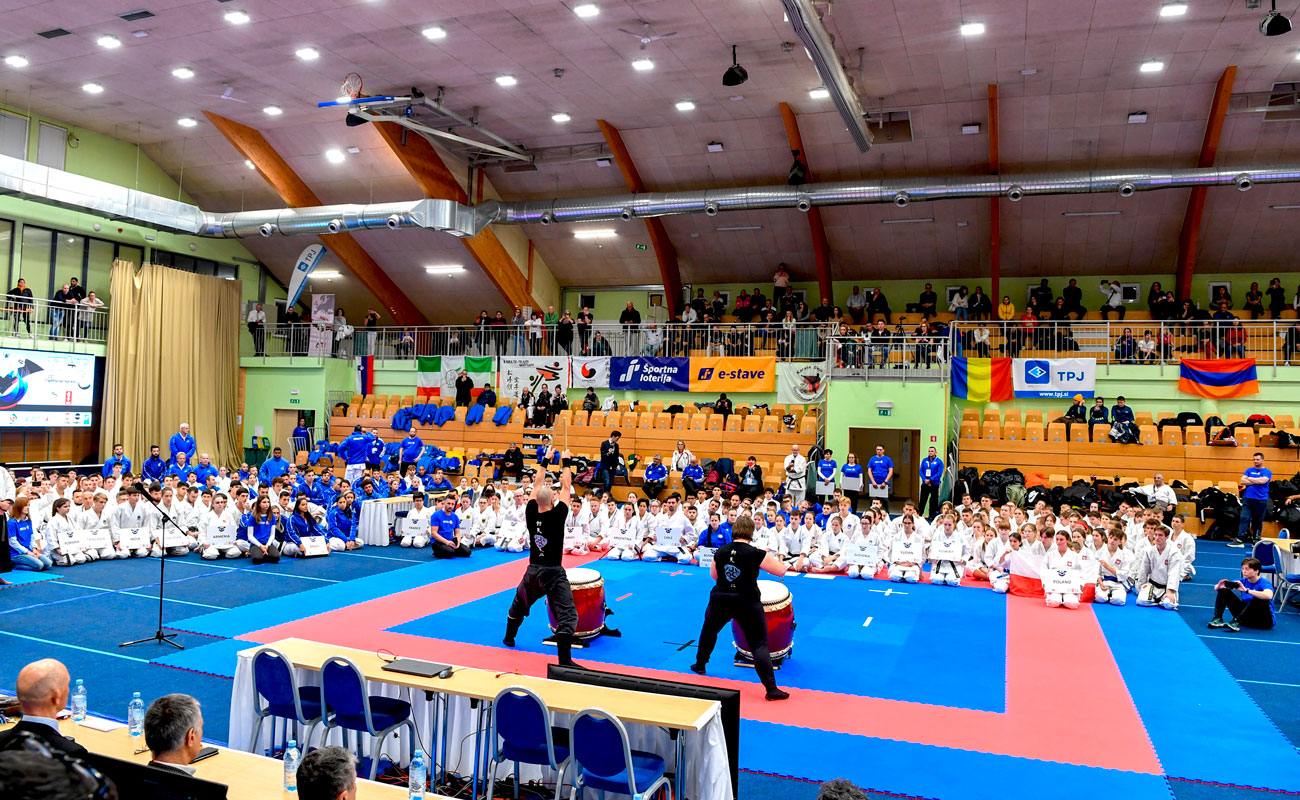
Tayko’s performance at the opening ceremony of the event
World Champions Honored
In the ceremony that preceded the finals, all ITKF world champions who went to Slovenia and who currently work as teachers, coaches and referees or in management roles within the administrative structure of ITKF and affiliated countries were honored. They are: Emilio Contarelli (Italy, 1990), Justo Gómez (Argentina, 1992/1994/2000/2006), Giordana de Souza (Brazil, 1994), Cornell Mussat (Romania, 1998/2000/2006/2012), Ricardo Buzzi (Brazil, 2002/2004/2006/2010), Vinícius Pinto (Brazil, 2004/2006/2010), Luca Wojcik (Poland, 2010/2014), Pawel Januzs (Poland, 2012), Mahmoud Mohamed Elkasrawy (Egypt, 2014) and Manca Urh (Slovenia, 2016).
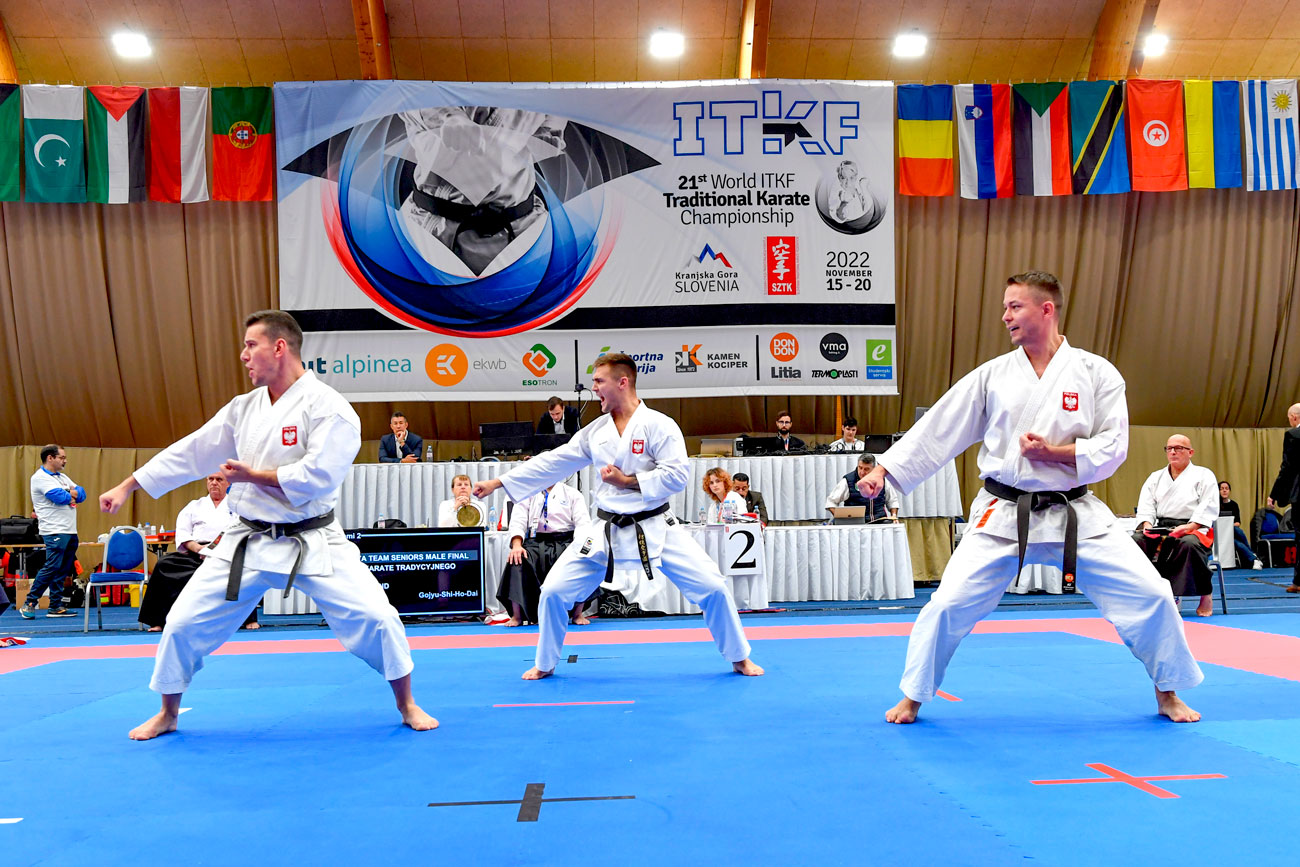
Kata men’s team © Júlio Oscar Albornoz
Competition results
Out of the 30 national teams that competed for medals, Brazil has won a total of 29 (13 gold, 8 silver and 8 bronze). Egypt was in second place with 28 medals (9 gold, 13 silver and 6 bronze), followed by Romania in third place with 26 medals (6 gold, 10 silver and 10 bronze).
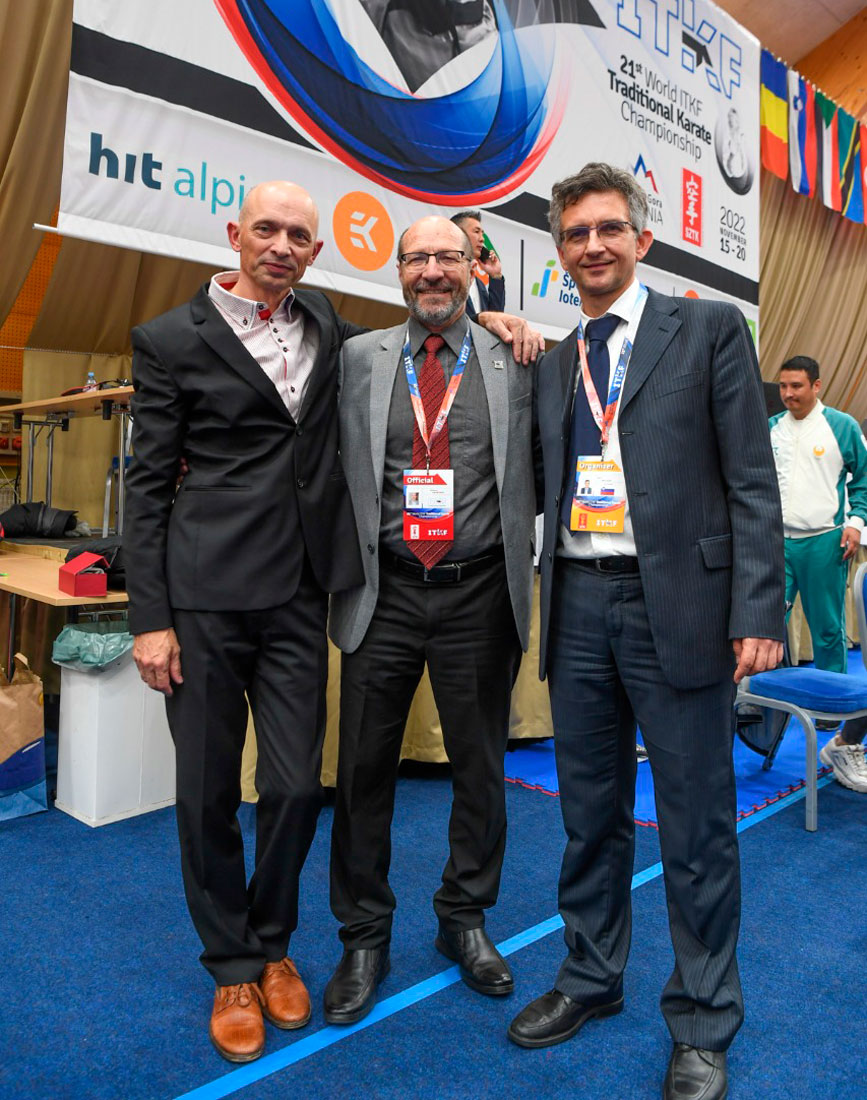
ITKF Chairman with event organizers Mr Roman Pavlovic and Iztok Malacic
The Italian team, at fourth place, won 16 medals (5 gold, 5 silver and 6 bronze). Poland secured fifth place with a total of 11 medals (2 gold, 4 silver and 5 bronze). Portugal reached sixth place with 5 medals (2 gold, 2 silver and 1 bronze).
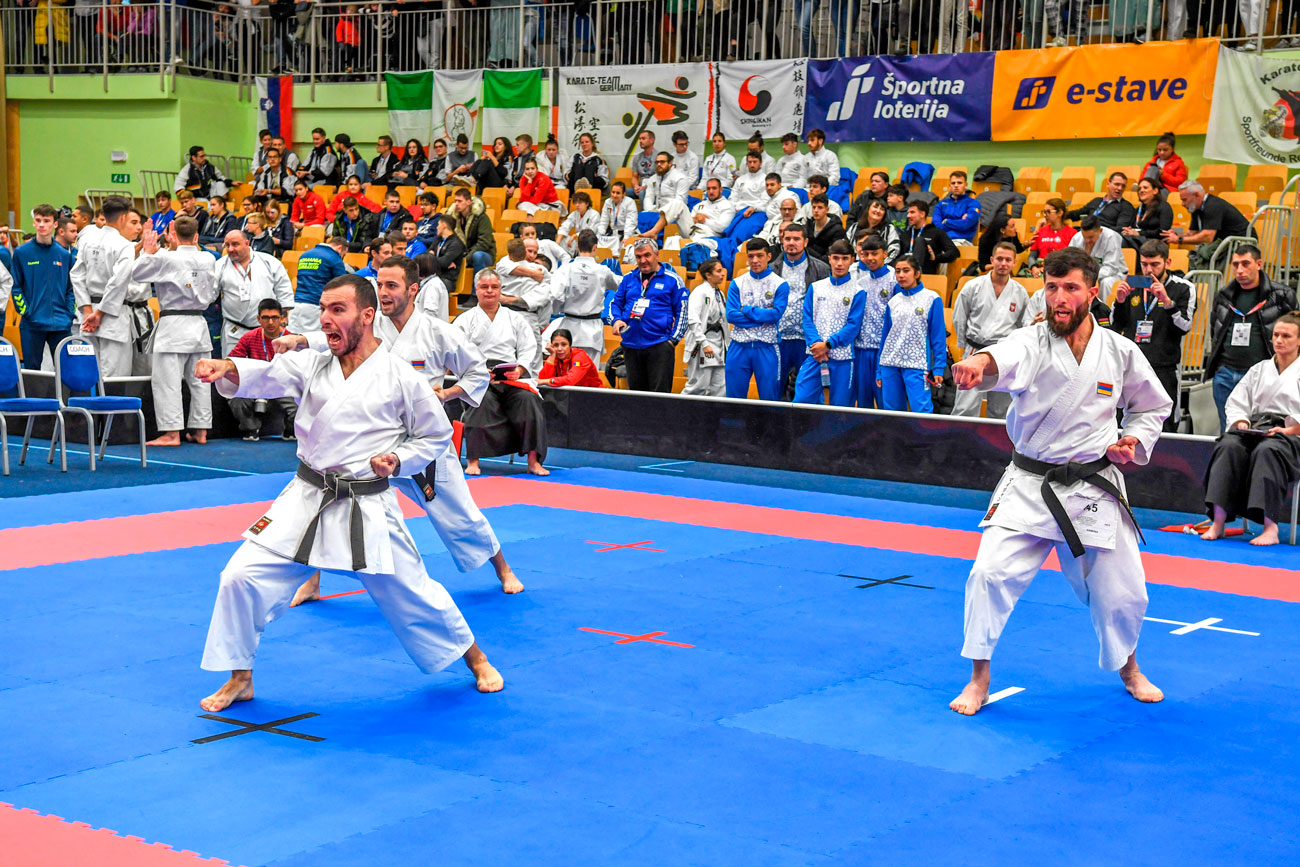
Men’s team kata dispute © Júlio Oscar Albornoz
Armenia finished in seventh place with 8 medals (1 gold, 2 silver and 5 bronze), while the host Slovenia was in eighth place with 8 medals (1 gold, 1 silver and 6 bronze). Argentina, in ninth place, won 2 medals (1 gold and 1 silver). The German team closed the top ten group with 2 medals (1 gold and 1 bronze).
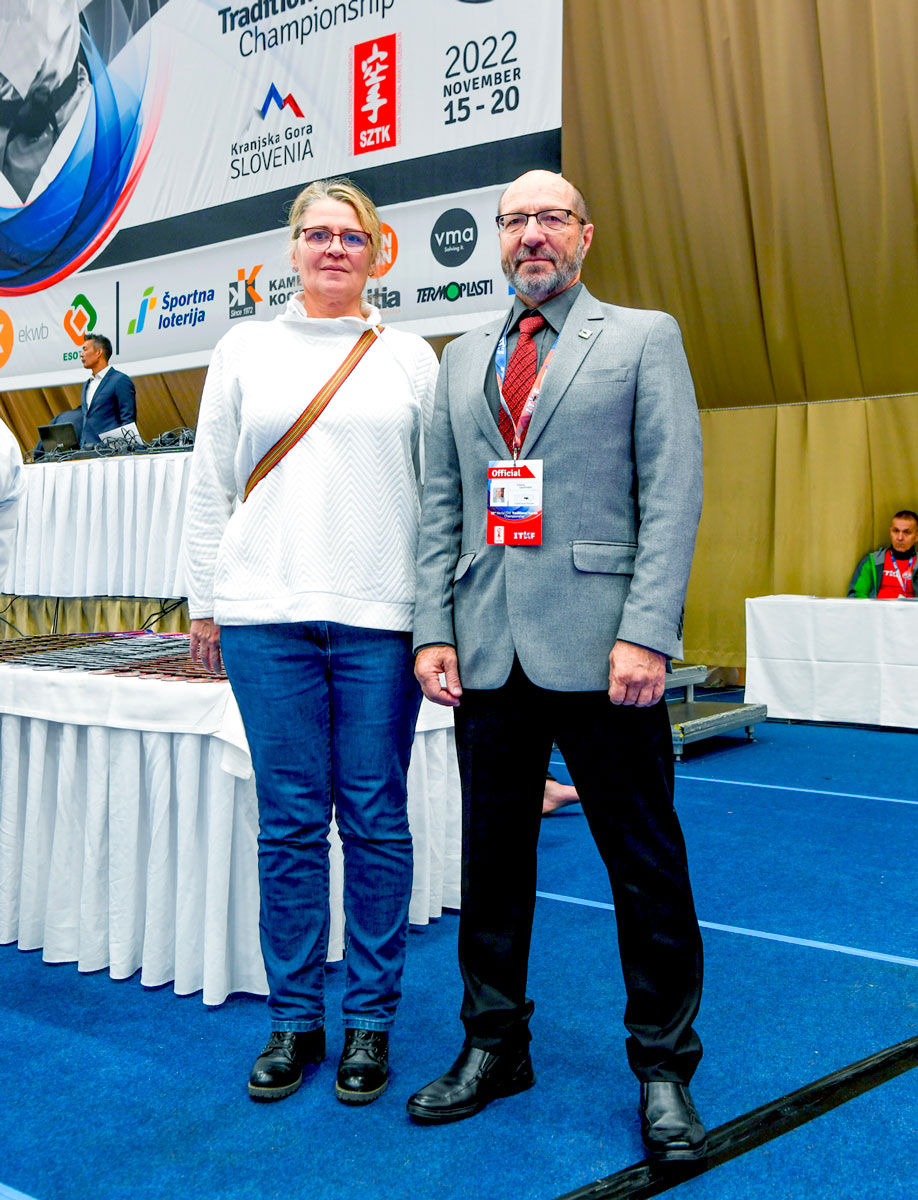
Sandrine El Marhoumy, ITKF vice president with ITKF chairman Gilberto Gaertner
Positive reviews
Assessing the ITKF since the last edition of the World Cup, Gilberto Gaertner highlighted that the event held in Brazil in 2019 marked the beginning of the entity’s reconstruction, after a period of institutional weakness.
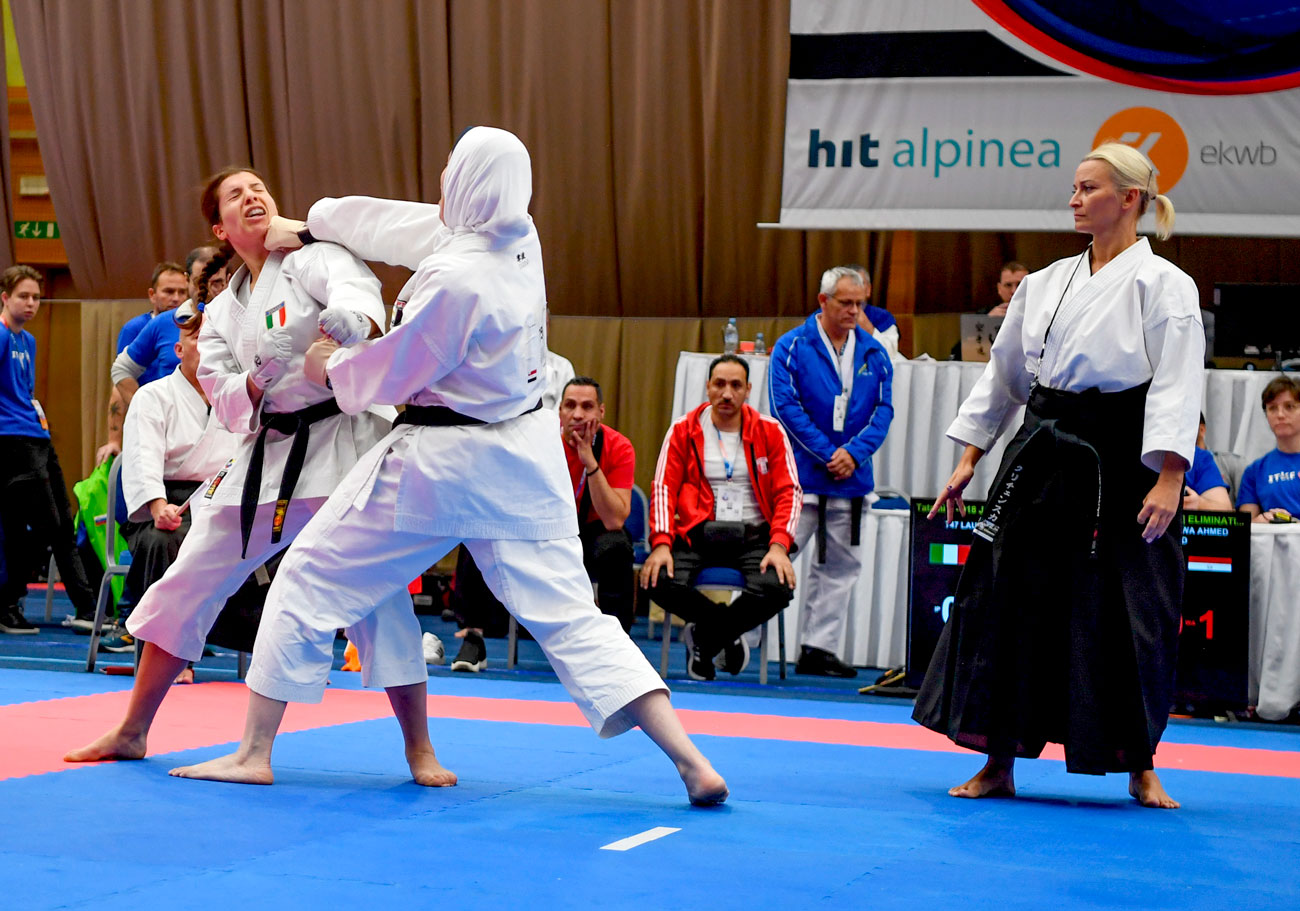
Female Kumite © Júlio Oscar Albornoz
“At that remarkable event, we carried out the strategic planning (2019/2022) and realigned the core objectives of the ITKF. But, unexpectedly, we had the covid 19 pandemic in 2020 and 2021. There were still some disagreements and the change of the institution’s headquarters from the United States to Brazil. Despite the bad weather, in this troubled period, the ITKF grew and strengthened significantly”, reported the chairman of ITKF.
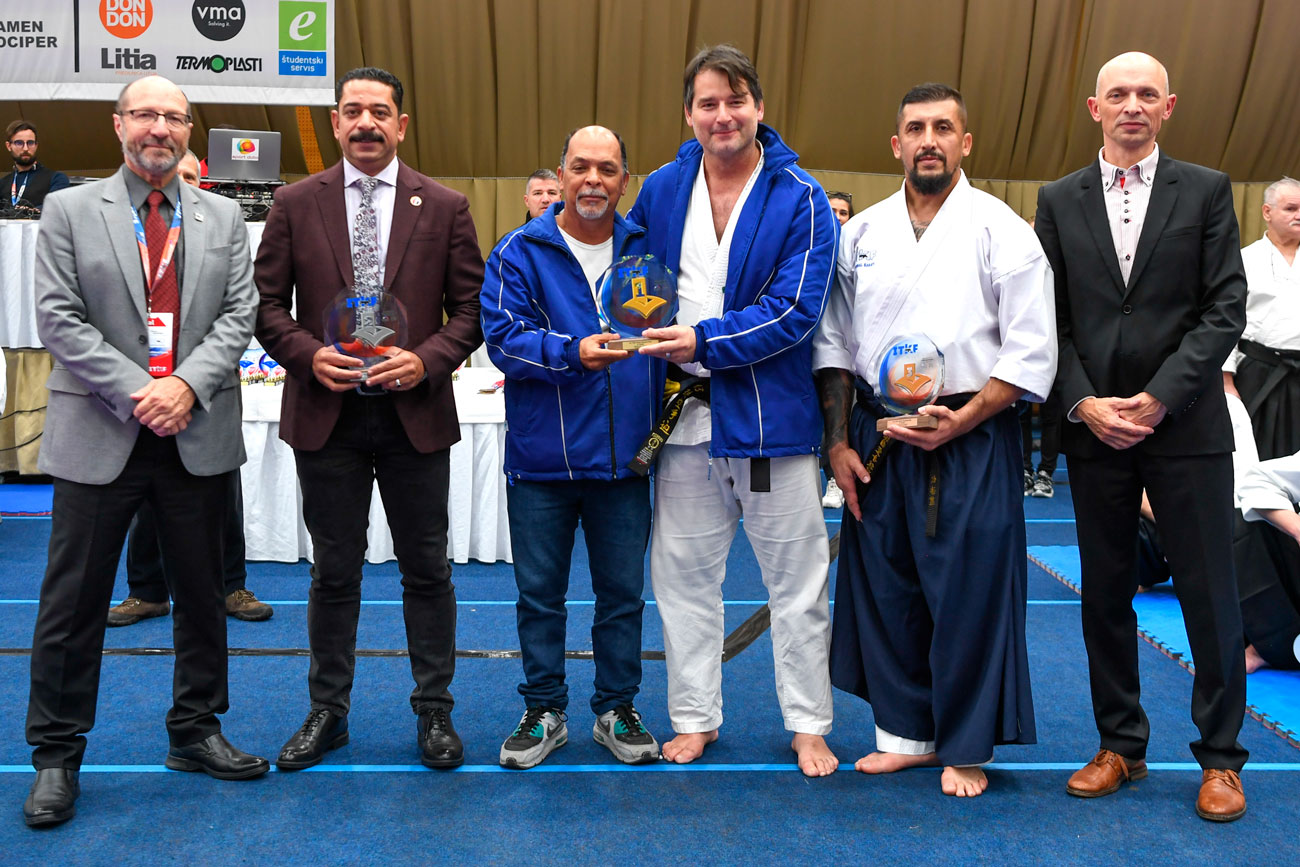
Representatives from Brazil, Sérgio Bastos and Ricardo Buzzi; Egypt, Ramy El Mekawi; and Romania, Cornell Mussat; receiving the 1st, 2nd and 3rd overall trophies from the ITKF Chairman and the Organizing Committee President
The 2022 World Cup in Slovenia was another historic milestone, according to the leader. “Holding the world championship in Kranjska Gora, Slovenia, was very important for traditional karate. It was the symbol of ITKF’s institutional consolidation. The organizing committee, headed by Roman Pavlovic, did an excellent job. The agenda and work were very well planned and executed. The innovation and technology used were undoubtedly the high point. A new registration, key generation and event management system was used, which worked very well with all modalities starting and ending disputes exactly at the scheduled times. A kata and enbu refereeing system was also inaugurated using tablets and we are still using VAR experimentally to resolve doubts in kumite disputes.”





